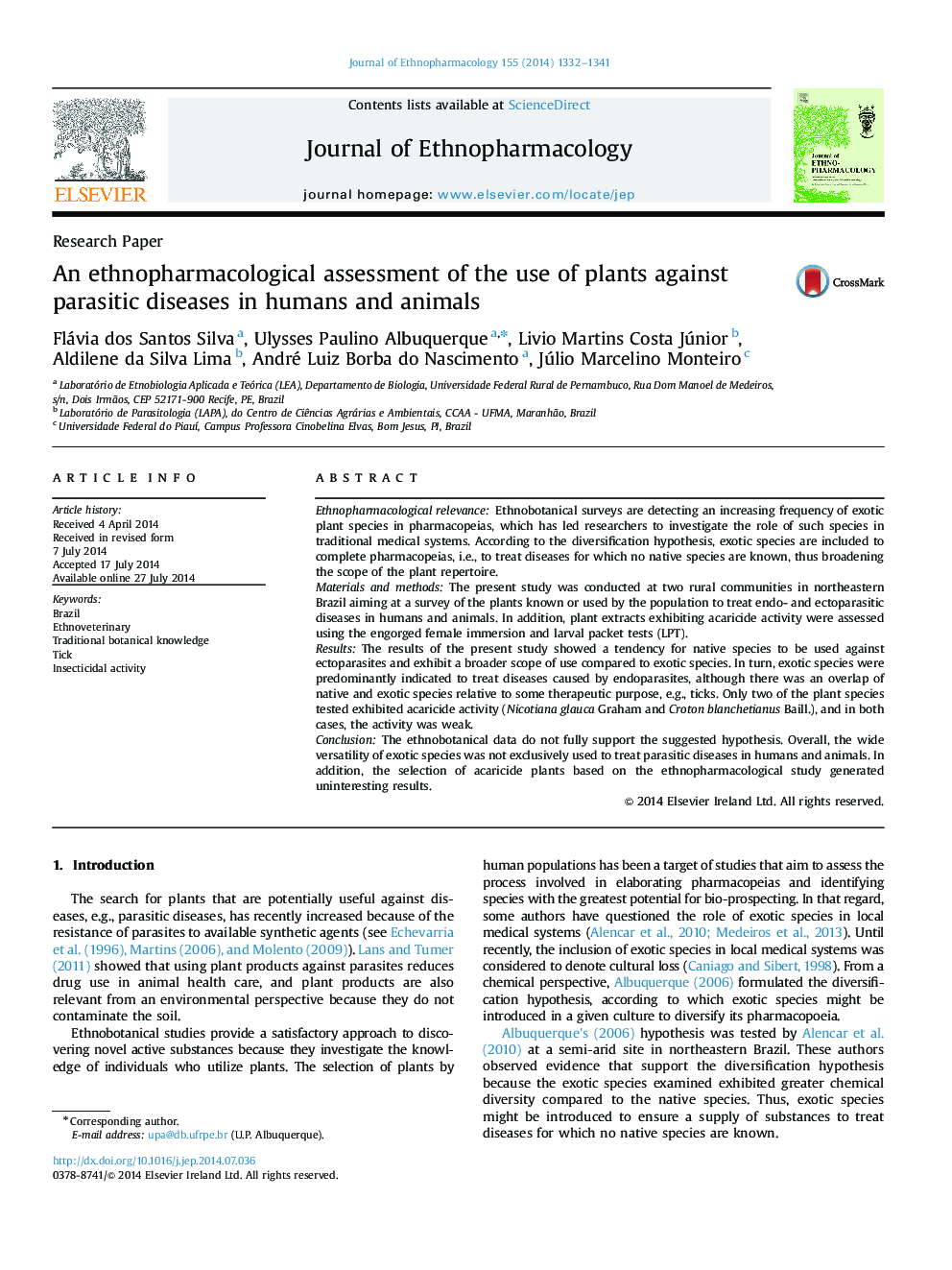| کد مقاله | کد نشریه | سال انتشار | مقاله انگلیسی | نسخه تمام متن |
|---|---|---|---|---|
| 5836146 | 1123938 | 2014 | 10 صفحه PDF | دانلود رایگان |
Ethnopharmacological relevanceEthnobotanical surveys are detecting an increasing frequency of exotic plant species in pharmacopeias, which has led researchers to investigate the role of such species in traditional medical systems. According to the diversification hypothesis, exotic species are included to complete pharmacopeias, i.e., to treat diseases for which no native species are known, thus broadening the scope of the plant repertoire.Materials and methodsThe present study was conducted at two rural communities in northeastern Brazil aiming at a survey of the plants known or used by the population to treat endo- and ectoparasitic diseases in humans and animals. In addition, plant extracts exhibiting acaricide activity were assessed using the engorged female immersion and larval packet tests (LPT).ResultsThe results of the present study showed a tendency for native species to be used against ectoparasites and exhibit a broader scope of use compared to exotic species. In turn, exotic species were predominantly indicated to treat diseases caused by endoparasites, although there was an overlap of native and exotic species relative to some therapeutic purpose, e.g., ticks. Only two of the plant species tested exhibited acaricide activity (Nicotiana glauca Graham and Croton blanchetianus Baill.), and in both cases, the activity was weak.ConclusionThe ethnobotanical data do not fully support the suggested hypothesis. Overall, the wide versatility of exotic species was not exclusively used to treat parasitic diseases in humans and animals. In addition, the selection of acaricide plants based on the ethnopharmacological study generated uninteresting results.
453
Journal: Journal of Ethnopharmacology - Volume 155, Issue 2, 11 September 2014, Pages 1332-1341
